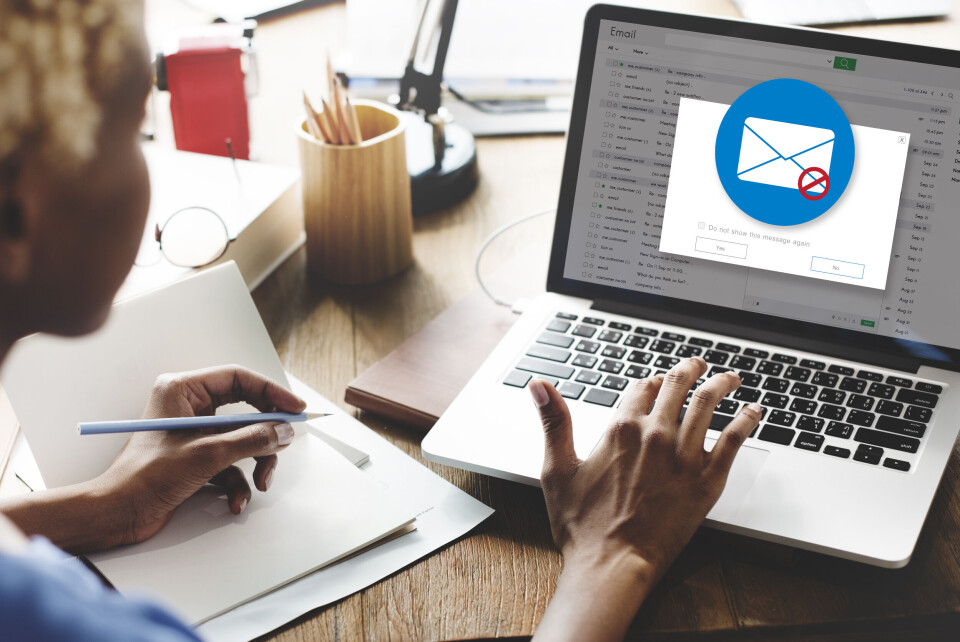-
Britons are the largest foreign community of second-home owners in Nouvelle Aquitaine
See which other departments in the region are popular with British nationals
-
Travellers risk extra costs under new Eurotunnel ticket rule
Some fare options are less flexible and less forgiving of lateness
-
May will be difficult month for train travel in France, warns minister
Two major train unions are threatening to strike and are ‘not willing to negotiate’, he says
France scam alert: Watch out for fake emails about inflation bonus
The CAF is warning of a scam email that appears to be genuine, asking people to fill in a form to receive extra inflation bonus money. We explain what to do if you receive it

People in France are warned to be alert for a scam email that appears to be from the Caisse d’allocations familiales (CAF), in relation to the €100 inflation bonus (indemnité inflation).
The inflation bonus is an exceptional, tax-free payment that was announced by Prime Minister Jean Castex in October, in an attempt to address rapid increases in the price of living.
The CAF is coordinating the payouts to up to 38 million people who earn less than €2,000 net a month.
Read more:French inflation bonus: €100 sum sent to more people this week
Read more:Emails from French DGFiP about €100 inflation bonus – are they scams?
However, it has warned of a new email, which appears to be from the CAF itself, telling recipients that they are eligible for a payout of €387 per person “to maintain households’ buying power”.
This is not true.
The email then asks recipients to click a link to fill out a form, using 13 numbers from their carte Vitale and their “usual password”. It says that the amount will be transferred automatically from February 15.
⚠️Attention #Phishing ⚠️
— Allocations Familiales (@cnaf_actus) February 4, 2022
Un faux courriel Caf vous invite à compléter un formulaire pour recevoir l'indemnité inflation.
🚫Ne cliquez pas sur le lien, il s'agit d'une tentative d'escroquerie visant vos informations personnelles.https://t.co/TYX0ciFbAe pic.twitter.com/4Vk4isFIEg
In reality, this email is a “phishing” scam (called ‘hameçonnage’ in French).
Phishing is when a scammer attempts to impersonate an organisation that you already know or use, such as your bank, tax office, or similar.
Emails and texts may look very convincing and may use the same logo, font, colours, and even a similar web address or phone number as your usual organisation or regular communications.
Phishing messages sometimes ask you to update your data, or log in using your “usual details”, via a fake website that then allows the fraudsters to impersonate you and access your real accounts.
What should I do if I receive a message from the CAF that I think is a scam?
Do not click on any links, call any numbers on the email, reply to it, or fill in any details. Call the CAF directly, and ask them if the email is genuine.
If you are in any doubt, simply delete the email and get in touch with the Caf directly.
What if I clicked the link or have been scammed?
Firstly, determine which details you shared.
- If you have given out your bank details, call or message your bank immediately and let them know. They will likely cancel your cards, change your passwords, or other access details to bar unauthorised access to your account and funds.
- If you have given out login details or logged in to a website that is not the genuine Caf.fr site, contact the CAF directly to let them know. They will likely give you a new confidential code and lock out anyone with the previous details.
- If you have given out any ID, you will need to make a formal complaint and seek to cancel the old document and provide for a replacement as soon as possible.
You can also signal instances of online scams and fraud attempts on the government website, internet-signalement.gouv.fr.
Related articles
France's €100 inflation bonus: Who will be the first to benefit?
First €100 inflation bonus payments to be made in France this week
UK state pensioners can now get France's €100 inflation bonus
























